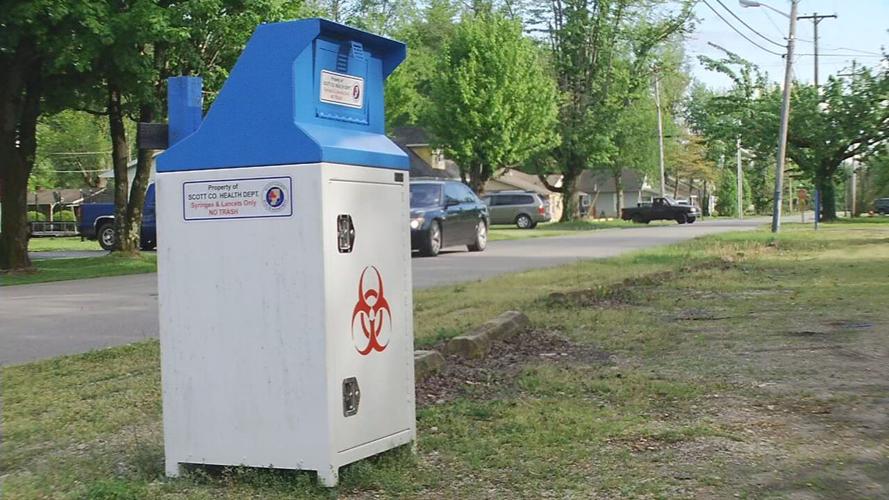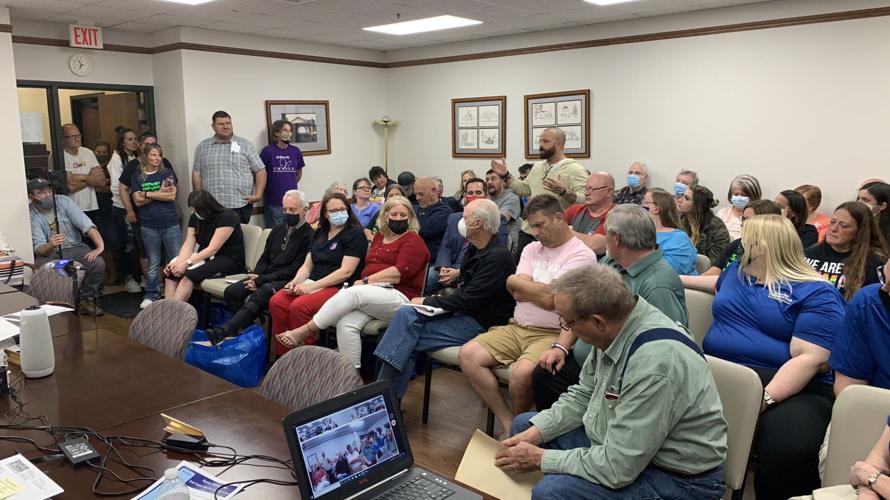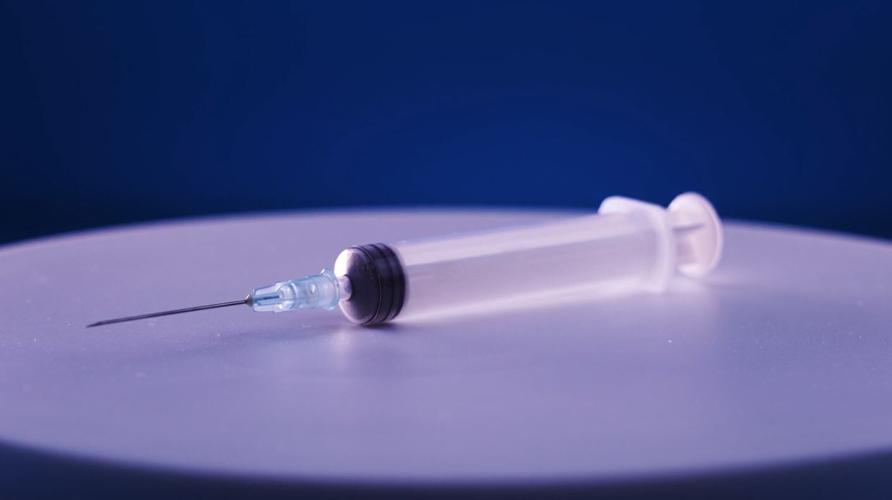LOUISVILLE, Ky. (WDRB) -- Officials in Scott County, Indiana, voted Wednesday to end a needle exchange program that became a national model when experts say it successfully mitigated an HIV epidemic.
In front of a packed meeting room with community members spilling out into the adjoining hallway, Scott County commissioners voted 2-1 to end the Syringe Service Program (SSP) by Jan. 1, 2022, although they said that date is flexible. However, advocates for the program — including public health experts and people who spoke firsthand about how it helped them overcome addiction — worried that the vote was taken without an alternative for recovery care in place.
Commissioners Mike Jones (District 2) and Randy Julian (District 1) voted in favor of ending the SSP, while Commissioner John Lizenby (District 3) voted to keep it intact.
"We have something to be very proud of here," Lizenby said before voting.
As was the case in the previous meeting, tonight the room and adjoining hallway are packed with people who care deeply about this issue. @WDRBNews pic.twitter.com/b5GAMXRIgz
— Chad K. Mills (@ChadKMills) June 2, 2021
The SSP was created in 2015 amid an unprecedented HIV outbreak to give drug users clean needles to avoid infection and stop the spread of diseases. According to a report published in 2018 by the Centers for Disease Control and Prevention, the program led to a large drop in needle sharing — from 74% to 22%.
Dr. Will Cooke says the needle exchange program in Scott County provides a resource that’s been overlooked so far tonight: love. @WDRBNews pic.twitter.com/DIKiHzEpjK
— Chad K. Mills (@ChadKMills) June 2, 2021
"It’s a good public service," said one community member, who is in recovery and spoke to the commissioners about how the SSP also connected him with human resources that helped him start down the path to overcoming addiction.
"We've had people tell us that the first time they've ever felt cared for in their entire life was when they walked into the clinic or when they've walked into the Syringe Service Program," said Dr. Will Cooke, who was the only physician in Austin, Indiana, during the epidemic. "That's when they start caring about themselves is when they feel cared for."
The commissioner who began the push to end the SSP, Jones, said the program is being abused and has created a community of overdoses, Narcan and discarded needles.
COMMISSIONER JONES: Overdoses are killing people in Scott County, not HIV. @WDRBNews pic.twitter.com/EDRjPX9H6p
— Chad K. Mills (@ChadKMills) June 2, 2021
"(Between 2017 and Wednesday), seventy-four people have died in Scott County from overdoses," he said. "To my knowledge, not one person has ever died of HIV in Scott County."
Before voting to end the program, Jones said he’d like to propose a "rec room" or something similar where addicts can go to get help.
In a written statement responding to the vote, Kelly Hans with the Scott County Health Department said she felt as though community members' voices weren't heard.
"I’m sad," said Hans, an HIV prevention outreach coordinator who runs the SSP on a daily basis. "I’m angry. I’m hurt."
This story will be updated.
Related Stories:
- Scott County's needle exchange program could be one step closer to ending
- Supporters of embattled needle exchange in Scott County say it's solving an ugly, dangerous problem
- Cutting needle exchange could cost Scott County millions, sheriff warns
- Top doctors say HIV will spread if Scott County leaders cut needle exchange program
- Scott County leaders to decide future of needle exchange program
- New CDC report says needle exchange in Scott County, Indiana, is working
Copyright 2021 WDRB Media. All Rights Reserved.

















